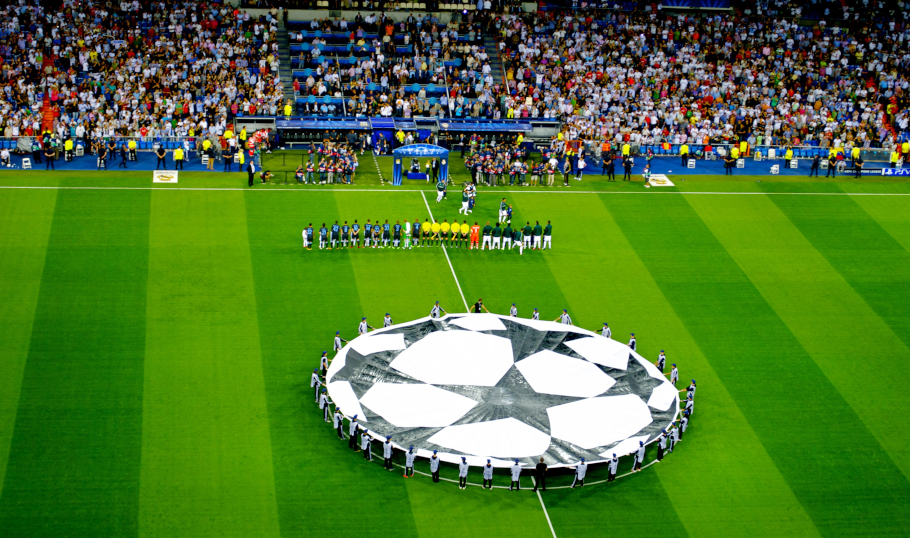Starting in the 2024-2025 season, the UEFA Champions League will undergo one of the biggest changes in its history, introducing a new format that revolutionizes Europe’s premier football competition. This overhaul is designed to increase excitement, broaden participation, and offer a more competitive structure to determine Europe’s best football club. Here’s a detailed breakdown of the new Champions League system and what it means for teams, fans, and the competition itself.
Key Changes in the New Format
- Expanded Tournament:
- The number of teams participating in the group stage will increase from 32 to 36. This expansion allows for more clubs from across Europe to compete in the prestigious tournament, giving opportunities to teams from less traditional football powerhouses.
- Single League Format:
- The biggest shift in the new system is the move from the traditional group stage format to a single league system. Previously, teams were divided into eight groups of four, but now all 36 teams will be placed in a single league table. However, they won’t play all 35 other teams. Instead:
- Each team will play eight matches against eight different opponents, with four games at home and four away. These matchups will be determined through a seeding process to ensure fairness.
- Qualifying for the Knockout Stages:
- The top eight teams in the 36-team league will automatically advance to the Round of 16.
- Teams finishing in 9th to 24th place will enter a playoff round, with two-legged ties determining who progresses to the Round of 16. The winners of these playoffs will join the top eight in the knockout phase.
- Increased Matches:
- Each team will now play eight matches in the league phase, up from six in the old group stage format. As a result, the total number of matches in the Champions League will rise significantly, from 125 games to 189 games.
- New Entry Paths:
- The four additional spots in the league phase will be awarded through different routes:
- Third-place teams from Europe’s top four leagues (which include the Premier League, La Liga, Bundesliga, and Serie A) will get an automatic spot.
- An additional spot will go to a team from a nation with the best collective performance in European competitions in the previous season.
- The two remaining places will be decided by teams from the qualification rounds, which includes champions of smaller leagues.
Why Was the Change Made?
- Revenue and Audience Growth:
- Expanding the tournament and increasing the number of high-profile matches means more broadcasting rights and sponsorship revenue for UEFA, clubs, and broadcasters. The competition’s new league format ensures that top teams will face more elite clubs, driving up viewer interest globally.
- More Competitive Balance:
- By expanding the tournament and increasing the number of matches, UEFA hopes to improve competitive balance. Smaller clubs will have more opportunities to test themselves against Europe’s best, while bigger clubs will face a wider array of opponents in the earlier stages of the competition.
- Avoiding a European Super League:
- The reforms were partly motivated by UEFA’s desire to appease Europe’s top clubs after the failed European Super League project in 2021. The new system offers elite clubs more big-ticket games against other top clubs while maintaining the Champions League’s open-access ethos.
How Will This Impact the Clubs?
- More Matches, More Revenue:
- Bigger clubs will welcome the increase in matches, particularly against other top sides. This provides an opportunity for more gate receipts, higher TV revenue, and additional commercial opportunities.
- Increased Squad Demands:
- With the additional matches, there will be more strain on squads, which could lead to higher demand for rotation and depth in teams. Managing the physical demands on players, particularly in a congested football calendar, will be a significant challenge for managers.
- Greater Risk for Mid-Tier Teams:
- For mid-tier teams, the playoff round provides a chance to qualify for the knockout stages, but it also presents added risk. A single bad playoff tie could end their Champions League journey prematurely, despite performing well in the league phase.
Fan Reactions and Controversy
The new format has received mixed reactions from fans and pundits alike. While some are excited about the expanded competition and more frequent high-stakes matchups, others are concerned about match congestion and the impact on player welfare. The removal of the traditional group stage, which has been a fixture for decades, also raises nostalgia concerns among long-time supporters of the competition.
There is also apprehension that the changes will further favor Europe’s wealthiest clubs, who already dominate the latter stages of the Champions League. The expansion of spots for teams from the biggest leagues is seen by some as a move catering to the elite clubs at the expense of smaller teams.
Conclusion
The new UEFA Champions League format represents a bold evolution for Europe’s top football competition. The expanded league phase and the playoff system promise to deliver more drama, more top-tier matches, and more opportunities for clubs to compete on the grandest stage. While the changes come with their own challenges and controversies, the new system is set to reshape the landscape of European football for years to come.
Fans, players, and clubs will be watching closely to see how this new era of the Champions League unfolds. Will it bring more excitement, or will it become too much of a good thing? Only time will tell, but one thing is certain—European nights are about to get even more thrilling.


